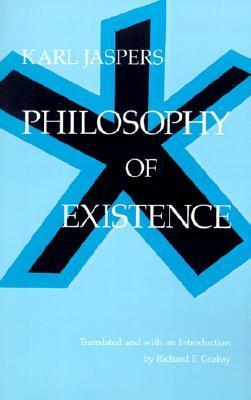
Existentialism is a Humanism
Book Description
Freedom and anguish collide in a world where existence precedes essence. Jean-Paul Sartre’s 'Existentialism is a Humanism' unravels a bold philosophy that celebrates individual choice and responsibility against a backdrop of absurdity. It challenges traditional beliefs, igniting a fire within as it dissects human existence, morality, and the weight of our actions. The stakes are high as humanity grapples with its own agency in a seemingly indifferent universe. This gripping exploration leaves one pondering: in a world devoid of predetermined purpose, how will you define your own existence?
Quick Book Summary
"Existentialism is a Humanism" by Jean-Paul Sartre is a seminal philosophical essay that articulates existentialism as a philosophy of human freedom and responsibility. Sartre explains how existentialism posits that "existence precedes essence": people first exist and only later define themselves through actions. He refutes critics who claim existentialism encourages despair or moral indifference, insisting instead that it empowers individuals to create their own meaning. Sartre stresses that each person, through the choices they make, also sets examples for humanity, bearing profound ethical responsibility. The book challenges readers to accept the anxiety that comes with freedom and embrace the duty to act authentically, shaping themselves and, by extension, the human race in a world without predetermined purpose.
Summary of Key Ideas
Table of Contents
Existence Precedes Essence
Sartre opens by addressing misconceptions about existentialism, especially criticisms from religious and Marxist thinkers who view the philosophy as gloomy or amoral. He clarifies that existentialism is not nihilistic but instead grants extraordinary dignity and responsibility to human beings. The doctrine "existence precedes essence" is central: human beings are not born with a fixed nature or purpose—instead, they define who they are by their choices and actions over time.
Radical Freedom and Responsibility
Freedom is both a privilege and a tremendous burden in Sartre's view. Each person is completely free to choose their own path, but this freedom also entails full responsibility for one's choices. Sartre argues that, in choosing for oneself, one also creates a portrait of what humanity can be. This notion of radical freedom undergirds existentialist ethics, demanding continual awareness of the impact and significance of one's decisions.
The Burden of Choice and Anguish
With freedom comes what Sartre calls "anguish": an anxiety or unease stemming from the weight of our responsibility—not only to ourselves, but to all of humanity. By acting, we set an example of what we think people ought to be, creating a model for others. This awareness can be paralyzing, but Sartre insists that it is an inescapable consequence of true freedom and must be confronted head-on rather than evaded.
Authenticity and Bad Faith
Sartre also introduces the concepts of authenticity and "bad faith." To live authentically means to make choices fully conscious of their freedom and responsibility. In contrast, living in bad faith consists of self-deception—denying one's freedom, blaming others, or claiming that one is forced to act a certain way. Sartre critiques those who evade responsibility by hiding behind social roles, religious prescriptions, or deterministic excuses.
Existentialism as a Humanistic Philosophy
In defense of existentialism as a humanism, Sartre concludes that the philosophy does not lead to despair but rather affirms the creative capacity of individuals. He encourages embracing the ambiguity and anxiety of existence as opportunities to forge meaning. Existence is a project, and through sincere, responsible action, individuals construct their identities and contribute to the human story. Existentialism thus becomes a rallying call for ethical engagement, solidarity, and hope.
Download This Summary
Get a free PDF of this summary instantly — no email required.





